Want to learn what to eat from the Mediterranean diet to help you lose or maintain weight? It might be easier than you think since the Mediterranean diet isn’t your typical “diet.” It’s based on the traditional dietary patterns of countries bordering the Mediterranean Sea so your food options are greater.
It’s more of an approach to nutrition and lifestyle that has garnered widespread acclaim for its numerous health benefits, including its efficacy in weight loss and maintenance. Join us and find out how it can help you achieve and sustain a healthy weight. First, we’ll give you a little background on the principles of the Mediterranean diet then run through the best foods for weight loss and management.
Table of contents:
The Essentials of the Mediterranean Diet
The main principles that underlie the Mediterranean diet are eating fresh whole foods, choosing healthy fats, eating lean proteins, and portion control.
Abundance of Fresh, Whole Foods
At the heart of the Mediterranean diet is a focus on whole, minimally processed foods. Fresh fruits and vegetables, whole grains, legumes, nuts, and seeds make up the foundation of this diet, providing a rich array of essential nutrients and fiber.
Healthy Fats, not Empty Calories
Unlike many Western diets that shun fats altogether, the Mediterranean diet embraces healthy fats, primarily derived from olive oil, nuts, and fatty fish. These fats not only contribute to feeling full but also support overall health, including cardiovascular well-being.
Learn more about how olive oil can help you lose weight and fish and seafood are important to the Mediterranean diet.
Lean Proteins
While the Mediterranean diet includes animal-based protein sources like red meat it places emphasis on lean animal proteins. Fish, especially rich in omega-3 fatty acids, is a staple, contributing to both weight management and heart health. Chicken and dairy like natural yogurt are also included, in moderation.
Moderation is Key
The Mediterranean diet emphasizes portion control and mindful eating. Rather than restrictive measures, it encourages savoring and enjoying food, fostering a healthier relationship with meals. A lot of this comes from the fact that meals are often social. Grazing while talking and sharing meals can help slow the pace of eating and make it more of a complete experience.
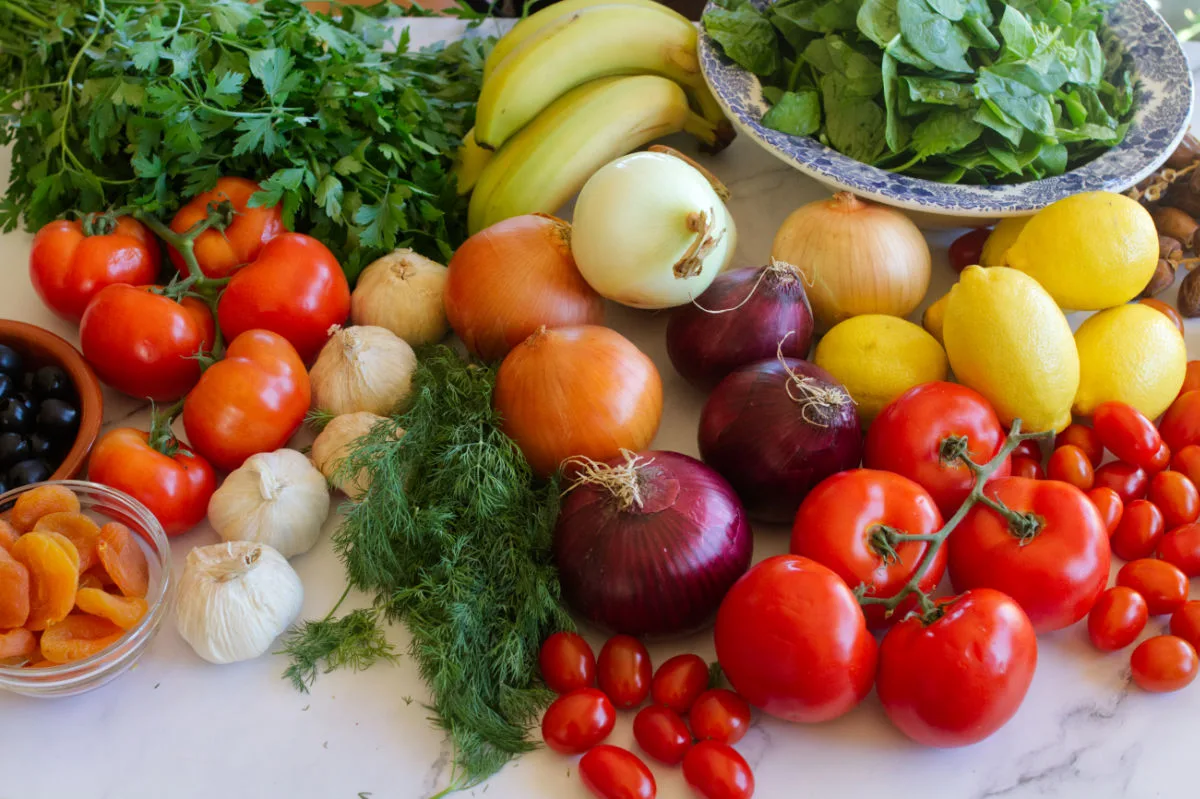
How the Mediterranean Diet Helps with Weight Loss
Based on the founding principles, the “diet” naturally leads to weight loss benefits.
Satiety and Reduced Cravings
The high fiber content of fruits, vegetables, and whole grains promotes feelings of fullness, reducing the likelihood of overeating and snacking on unhealthy foods. It’s also common in many parts of the region to see fruit served as a dessert or as a focal point of a dessert.
Balanced Macronutrients
By incorporating a balanced ratio of macronutrients (naturally) — healthy fats, lean proteins, and complex carbohydrates — the Mediterranean diet helps regulate blood sugar levels, reducing the risk of energy crashes and subsequent cravings.
Metabolic Boost
The combination of nutrient-dense foods and healthy fats can contribute to an enhanced metabolism, facilitating weight loss and making it easier to maintain a healthy weight over time.
But, a fast metabolism is only part of the picture and the amount of calories you need to consume (or not) to lose weight is dependent on many factors such as body type, age, and physical activity.
Food to Eat that Supports Weight Loss and Management
Unlike short-term diets, the Mediterranean lifestyle is designed for long-term adherence. Don’t be disappointed if you don’t see results overnight. It’s about making sensible choices that are practical and sustainable in our busy lives. This isn’t about shredding pounds instantly, although you may start to feel better on the inside and emotionally if you start eating much healthier.
Enjoying meals with family and friends, savoring the flavors of fresh, seasonal ingredients, and engaging in physical activity contribute to a holistic and sustainable approach to weight maintenance.
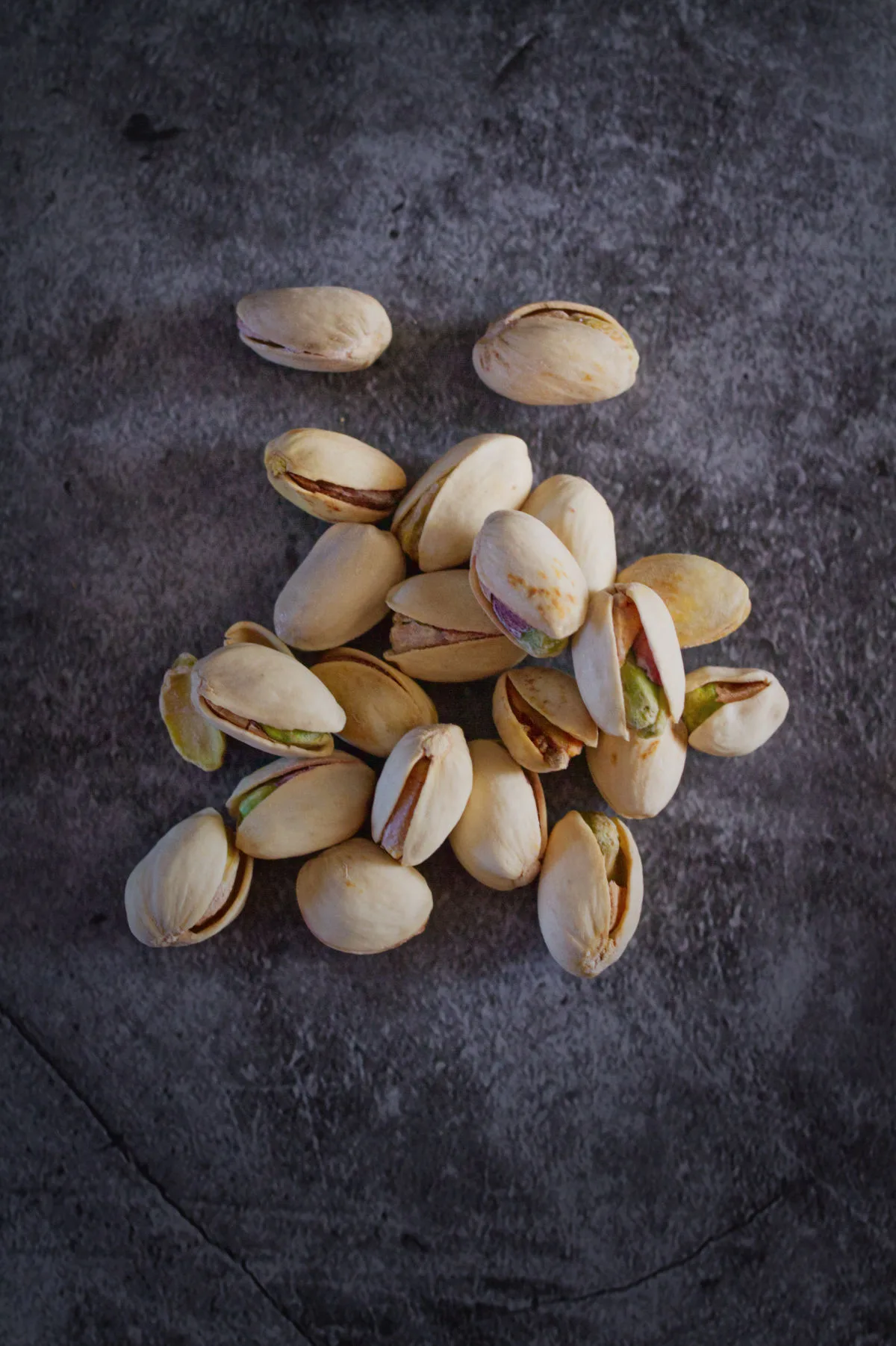
10 Excellent Grains, Nuts, and Legumes That Support Weight Loss
- Quinoa: While not native to the Mediterranean region it has worked its way into its culinary landscape. High in fiber and rich in essential amino acids, quinoa helps maintain a feeling of fullness, reducing overall calorie intake. It also provides sustained energy.
- Farro: An ancient grain with a nutty flavor and chewy texture, farro is packed with fiber, vitamins, and minerals, supporting digestive health and helping to control blood sugar levels. Its complex carbohydrates release energy gradually, preventing sudden spikes and crashes that can lead to overeating.
- Lentils: Lentils are a treasure trove of nutrition with protein, fiber, and essential nutrients. They’re also low in calories making them an ideal addition to meals for weight management. Use your favorite type/s of lentils or learn more about lentils.
- Chickpeas: Chickpeas are also an excellent source of protein and fiber. They also contain resistant starch, a type of carbohydrate that supports weight loss by promoting fat burning.
- Bulgur: A whole grain made from cracked wheat, it’s a popular ingredient in Mediterranean dishes like tabbouleh. Its low-calorie density makes it a weight-loss-friendly choice, allowing you to enjoy a satisfying portion without excess calories.
- Almonds: Almonds are packed with healthy fats, protein, and fiber. Studies have shown that incorporating almonds into your diet can help control appetite and reduce overall calorie consumption, contributing to weight loss.
- Walnuts: Walnuts are another popular nut in the Med. They are rich in omega-3 fatty acids, which contribute to a feeling of fullness. The combination of protein, fiber, and healthy fats in walnuts can help curb cravings.
- Pistachios: Research suggests that incorporating pistachios into your diet may also aid in weight loss by promoting feelings of fullness and reducing the desire to snack on unhealthy options. Just be careful of added salt in packaged pistachios if you’re watching your sodium intake.
- Fava beans: A variety of broad beans, they’re an excellent source of plant-based protein and fiber. These nutrients can help regulate your appetite. Fava beans also contain a variety of vitamins and minerals that support overall health.
- Hazelnuts: High in healthy fats, fiber, and antioxidants, this combination of nutrients can help control your appetite and promote a sense of satisfaction, making it easier to maintain a calorie-controlled diet for weight loss.
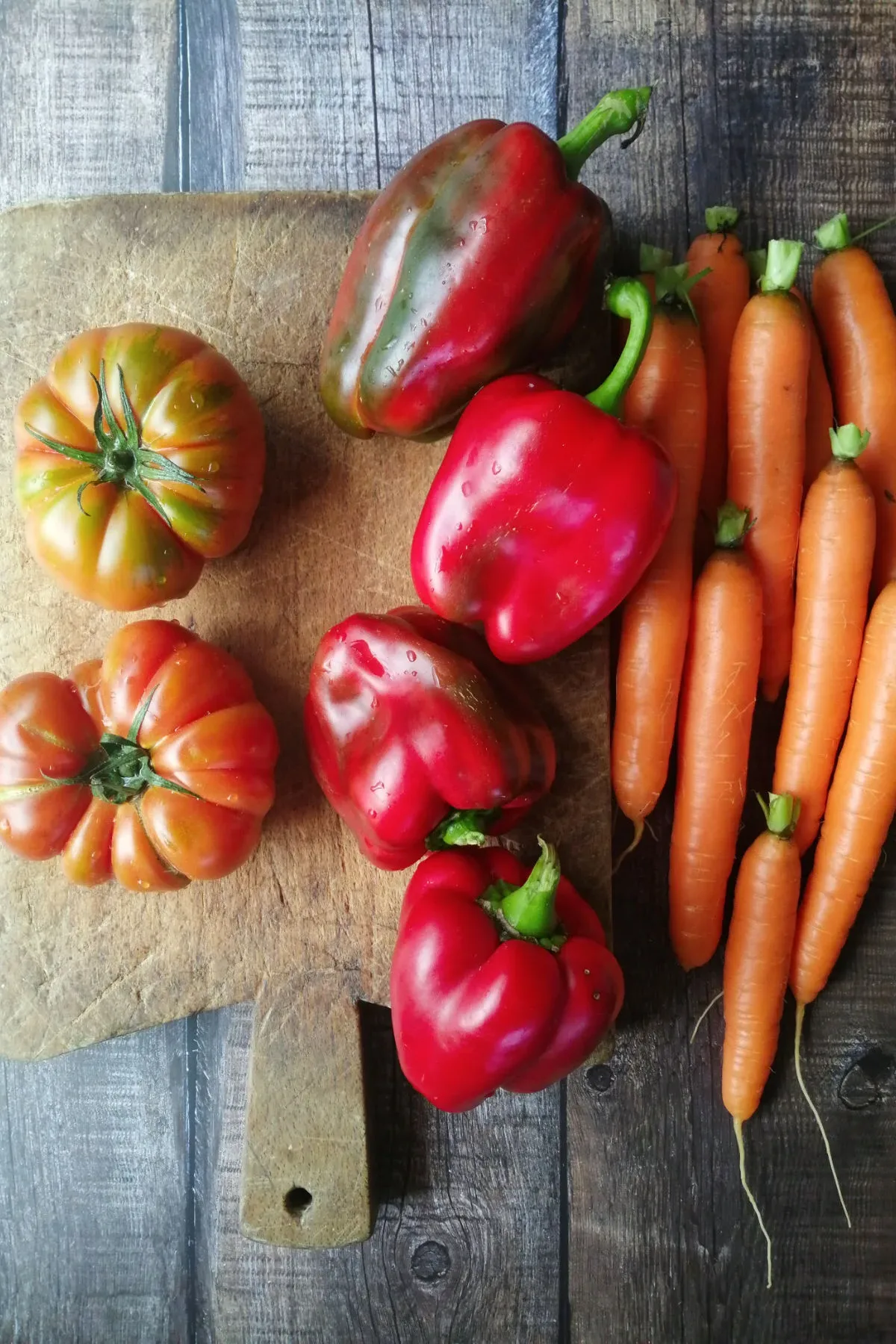
10 Excellent Vegetables That Support Weight Loss
- Spinach: Low in calories, high in fiber, and packed with vitamins and minerals, spinach is an excellent choice for weight loss. It adds bulk to meals without contributing many calories, giving you a feeling of fullness.
- Cabbage: Cabbage is low in calories and high in fiber. Before you run away, you don’t have to follow the cabbage soup diet to benefit from this luscious vegetable. In fact, there are so many better ways to enjoy and cook cabbage.
- Broccoli: Broccoli is a nutrient-dense vegetable rich in fiber, vitamins (especially vitamin C), and antioxidants. Its high fiber content aids in digestion and helps control appetite.
- Cauliflower: Low in calories and carbohydrates, cauliflower is a versatile vegetable that can be used as a substitute for higher-calorie foods (think cauliflower rice). It’s also rich in vitamins and fiber, making you feel fuller for longer and out of the snack drawer.
- Bell Peppers: Bell peppers (capsicums) are low in calories and high in fiber. Their natural sweetness can satisfy cravings for something sweet or a naughty snack. Try cutting a pepper into strips to dip in baba ganoush (eggplant dip) or Greek tzatziki, for example.
- Carrots: Carrots are a crunchy, satisfying snack that is low in calories and high in fiber. They also make a good dipping partner or just enjoy munching on them alone.
- Kale: Kale is a nutrient powerhouse, packed with vitamins, minerals, and antioxidants. It’s also low in calories and high in fiber, making it an excellent choice for weight management.
- Zucchini: With a high water content and low calories, zucchini is a hydrating vegetable that adds volume to meals without contributing excess calories.
- Sweet Potatoes: Despite their sweet taste, sweet potatoes have a lower glycemic index compared to regular potatoes. They are rich in fiber, vitamins, and antioxidants, providing a satisfying and nutritious option.
- Tomatoes: While botanically speaking tomatoes are a fruit, in the food world they’re typically considered vegetables. Either way, they’re low in calories and high in water content. The compound lycopene in tomatoes has also been linked to weight management.
10 Excellent Fruits That Support Weight Loss
- Apples: Apples are low in calories, high in fiber, and contain natural sugars that provide a sweet taste without the need for added sugars. The fiber in apples promotes the feeling of fullness and aids in digestion.
- Berries: Berries like strawberries, blueberries, and raspberries are rich in antioxidants, vitamins, and fiber. They’re lower in calories compared to many other fruits and can satisfy sweet cravings while contributing to a feeling of fullness.
- Grapefruit: Grapefruit are known for having metabolism-boosting properties. They’re low in calories and have been associated with weight loss for a while now, possibly due to their impact on insulin levels. You don’t need to eat them raw if you’re not a fan — try and add them to salads to spice things up a bit.
- Oranges: Oranges are rich in vitamin C and fiber. The fiber content helps slow down the digestion of sugars, promoting a gradual release of energy and aiding in weight management.
- Avocado: Avocados are often treated as a vegetable but they’re technically a berry. However you consider them and use them, they’re high in healthy monounsaturated fats, which contribute to a feeling of fullness and can prevent overeating.
- Pears: Pears are a good source of dietary fiber, particularly pectin, which can help regulate blood sugar levels and make you feel full. They’re also low in calories so a win-win.
- Watermelon: Watermelon is high in water content (as the name might suggest!), making it a hydrating and low-calorie option. It provides natural sweetness without the added sugars found in many processed snacks or desserts.
- Pineapple: Pineapple contains bromelain, an enzyme that helps in digestion. Being naturally sweet, it can satisfy sugar cravings without adding excessive calories.
- Kiwi: Kiwi is rich in vitamins C and K, as well as dietary fiber. Its unique combination of sweetness and tartness can make it a satisfying and flavorful addition to a weight-loss-friendly diet.
- Figs: Reach for a sweet fig if you’re craving something sweet. They’re naturally one of the sweetest fruits so can give you that sweet hit whilst also a boost of fiber which helps reduce the likelihood of sweet cravings and stabilizes your energy levels.
Swap Your Protein
Red meat can be eaten as part of the Mediterranean diet, but it’s not the preferred animal-based protein. Healthier options include seafood (shrimp and calamari are common) and fish (especially fatty fish like mackerel and salmon). Chicken can also be eaten in moderation and is a good low-calorie option.
Dairy also features in many Mediterranean recipes or as snacks. The favored options are natural Greek yogurt, eggs, and lower-fat cheeses like cottage cheese.
Of course, as we ran through earlier, plant-based protein sources like legumes and nuts are used extensively in the Mediterranean diet.
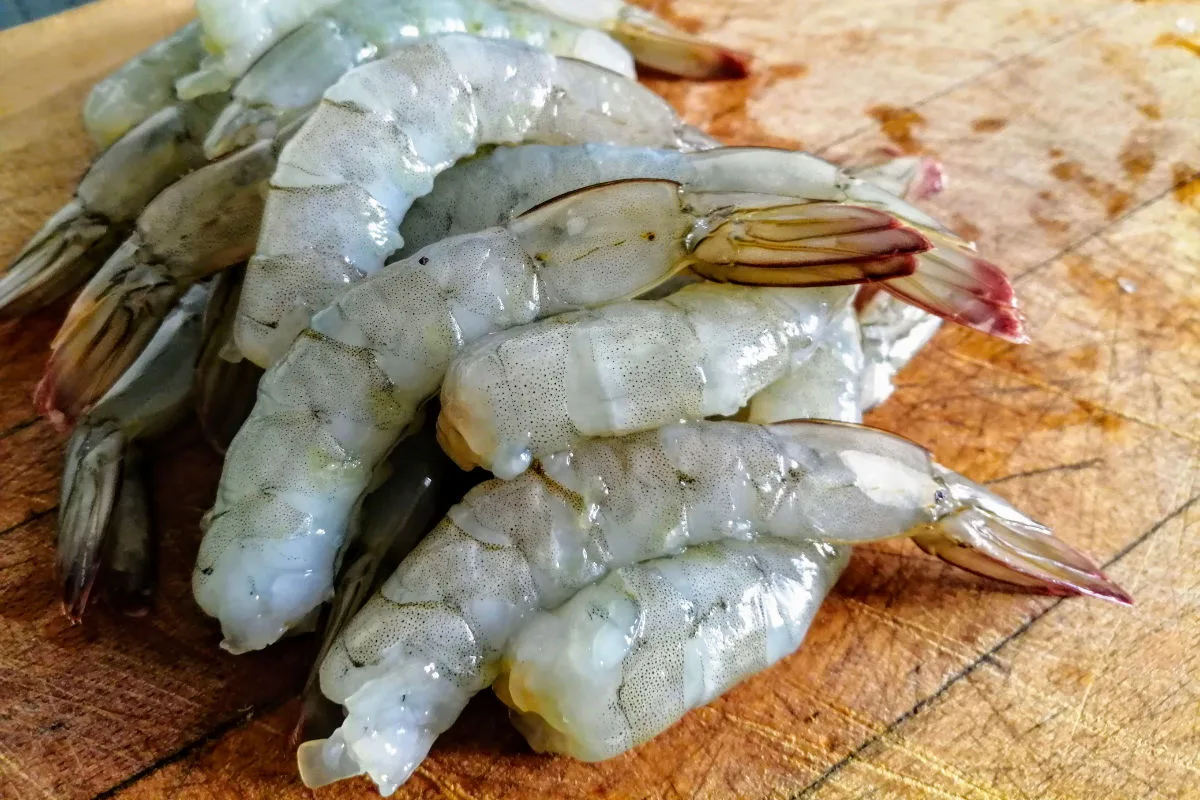
Enjoy the Process
If you’re sitting there thinking that’s a lot to change in your diet and lifestyle habits you don’t have to implement everything at once. If you know you’re the type of person who can’t live without their favorite naughty snack each day, see if you can swap it for nuts, fruit, or natural yogurt.
Or if you eat red meat every day, start cutting down on it and swapping it for different animal-based proteins and plant-based proteins. Whatever you do, remember that it’s a journey, one that should last a lifetime. Enjoy discovering new recipes and trying new foods in the Mediterranean diet that you haven’t considered, or maybe even heard of before.
Easy Mediterranean Diet Recipes to Get You Started
- Shakshuka (a healthy vegetarian egg breakfast)
- Turkish beetroot yogurt dip with roasted vegetables
- Baked Mediterranean rice with dates, apricots, and chickpeas
- Melitzanosalata (Greek eggplant dip)
- Za’atar with roasted eggplant and artichoke hearts
- Moroccan couscous with roasted veg and tahini dressing
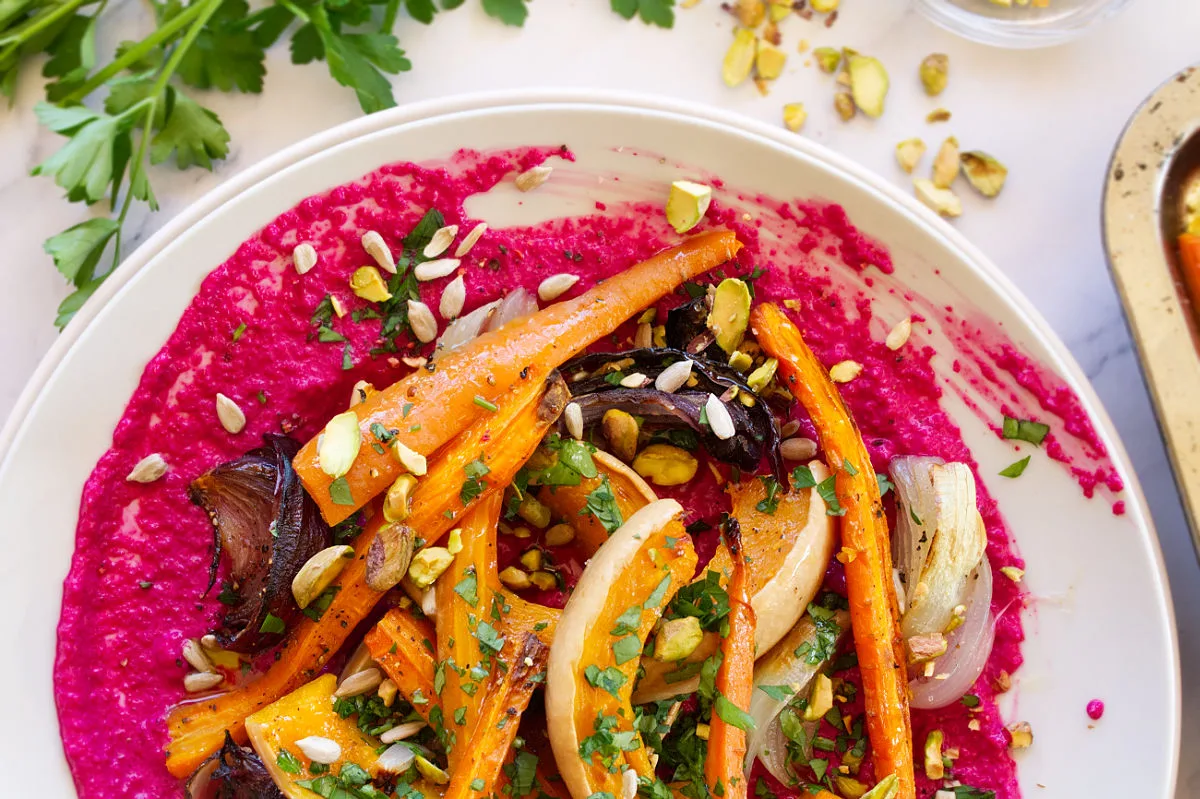

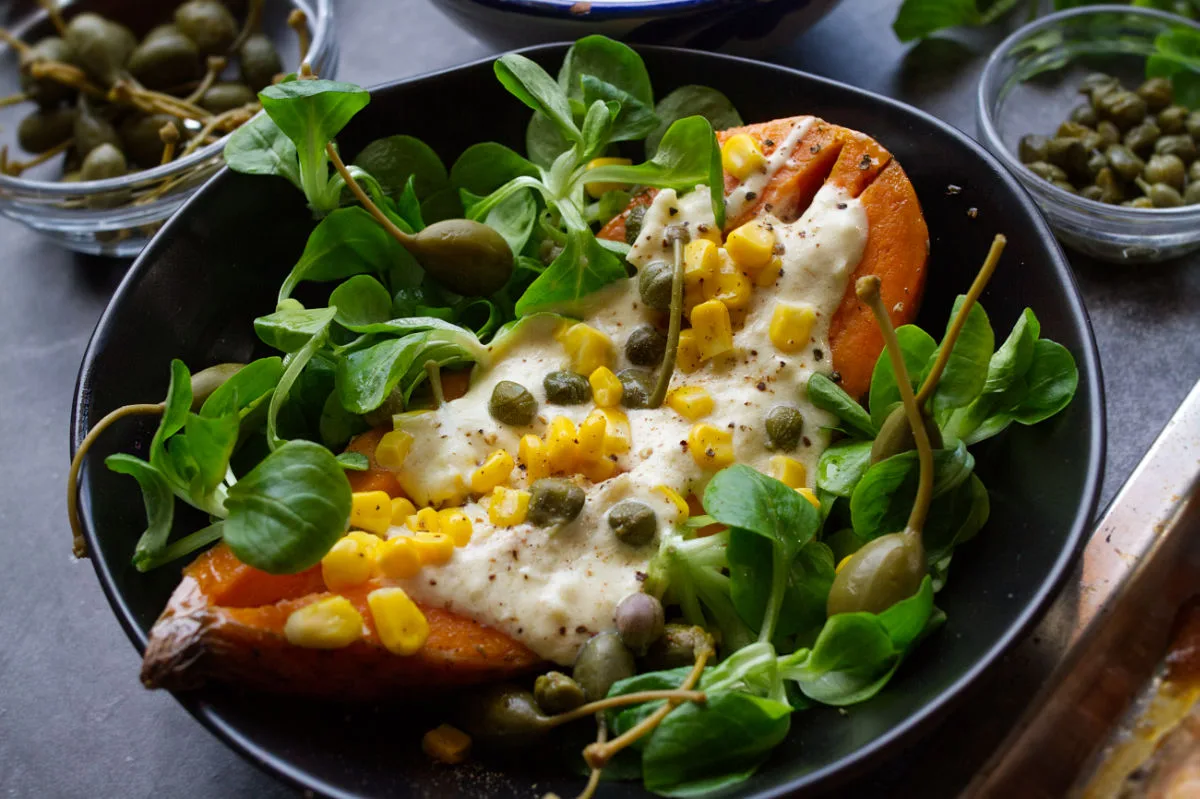
Leave a Reply